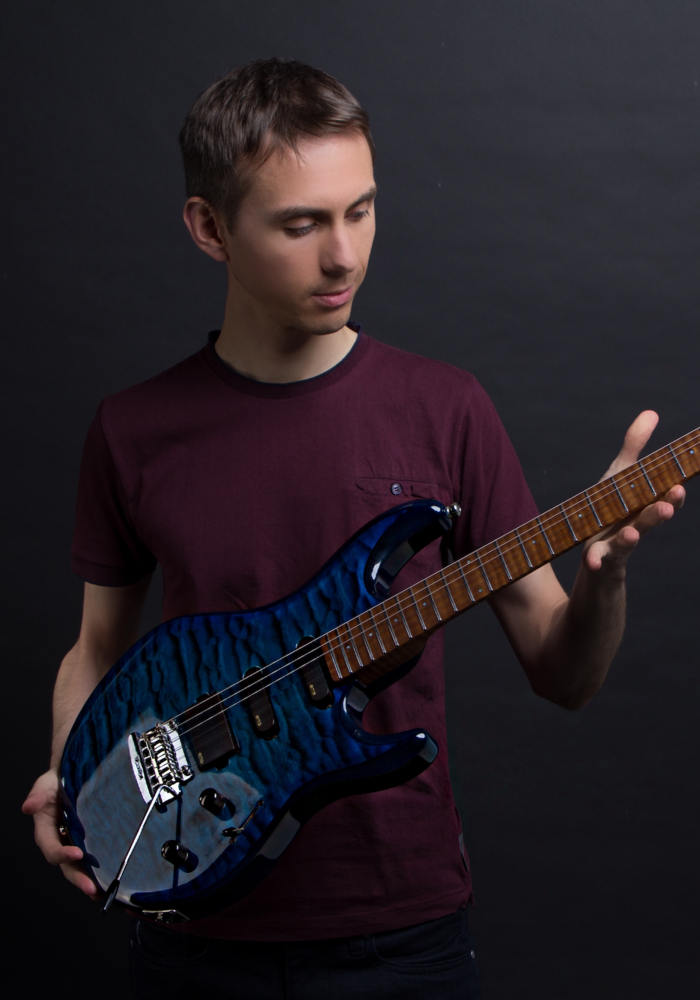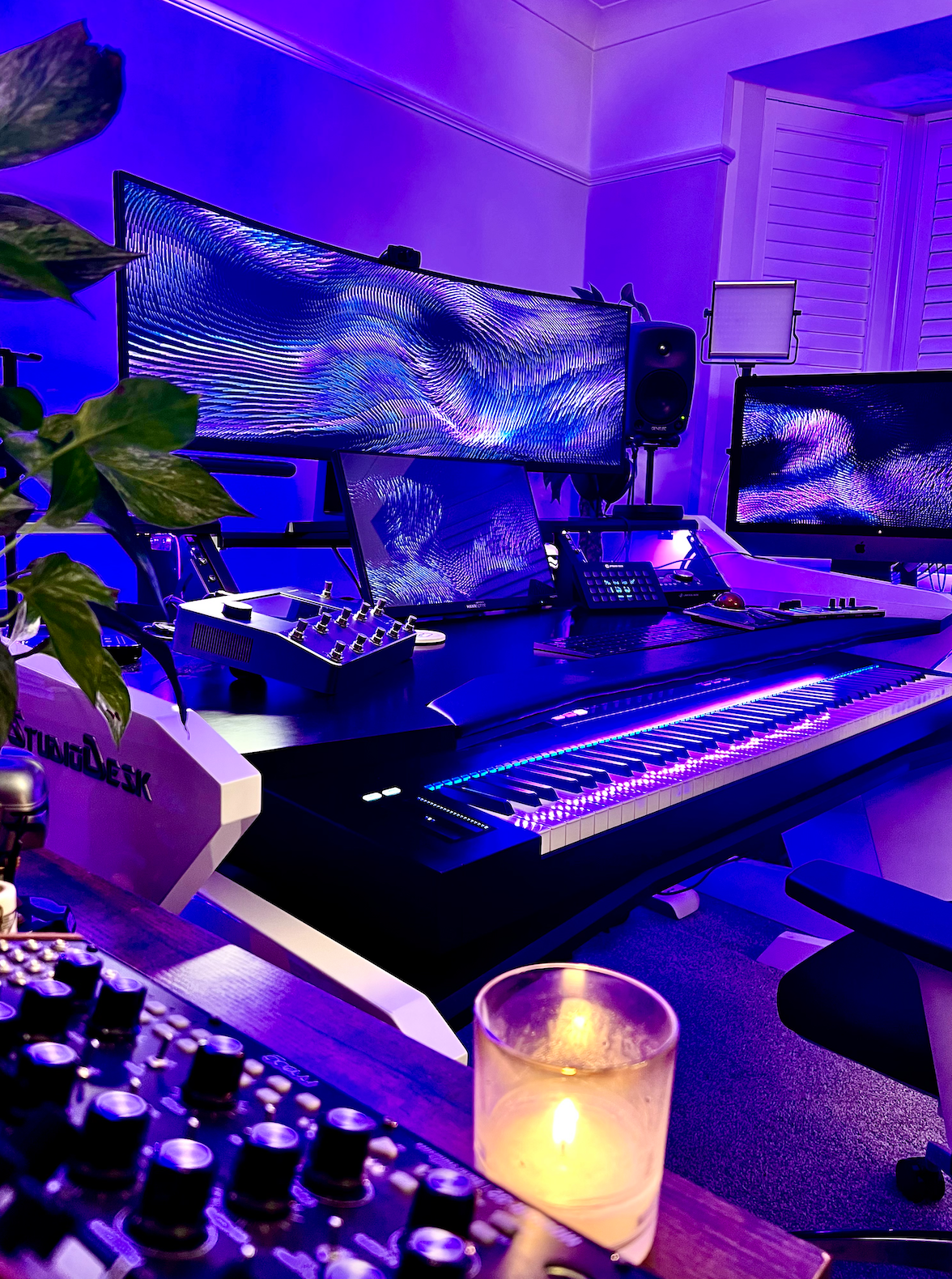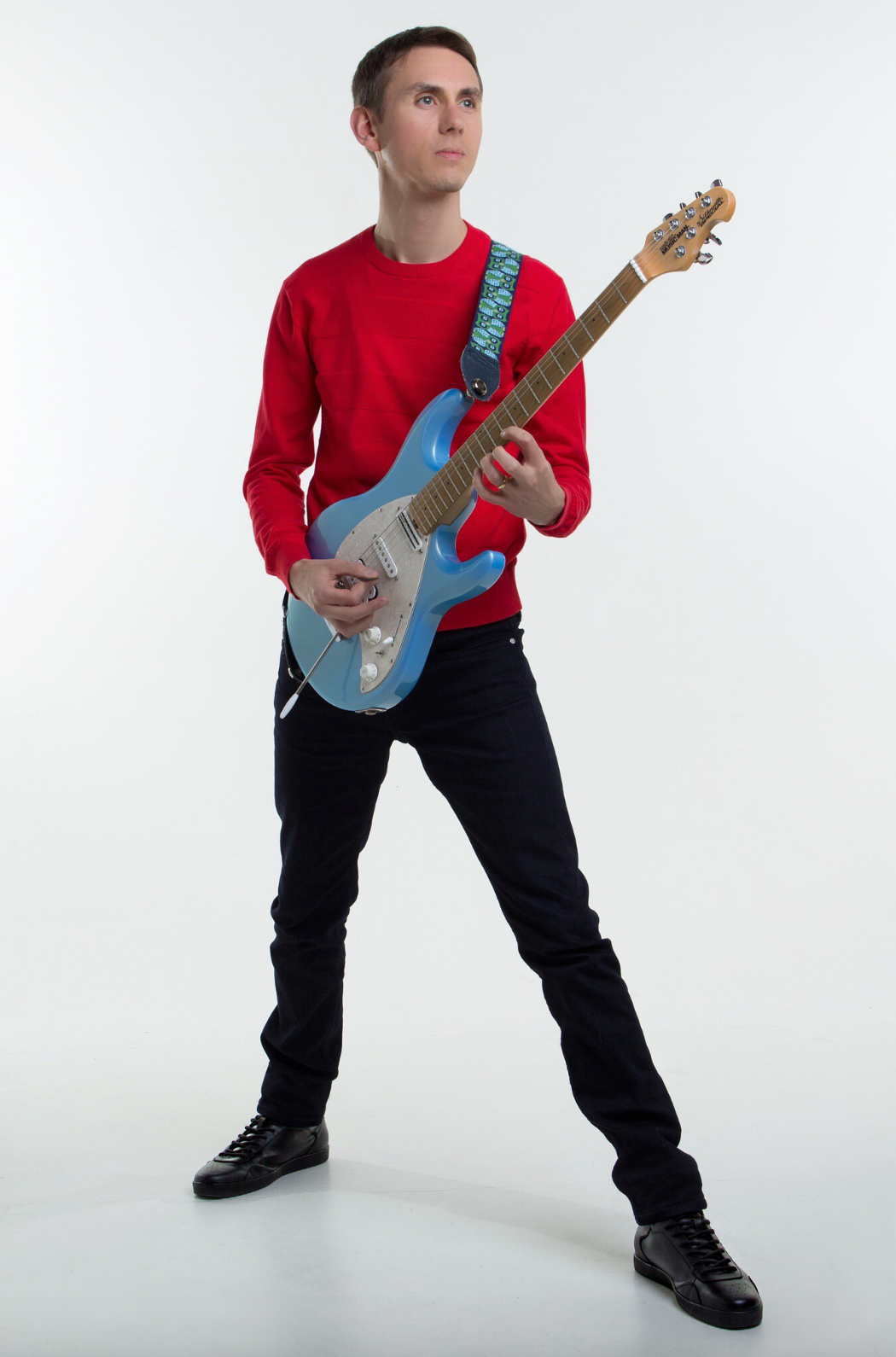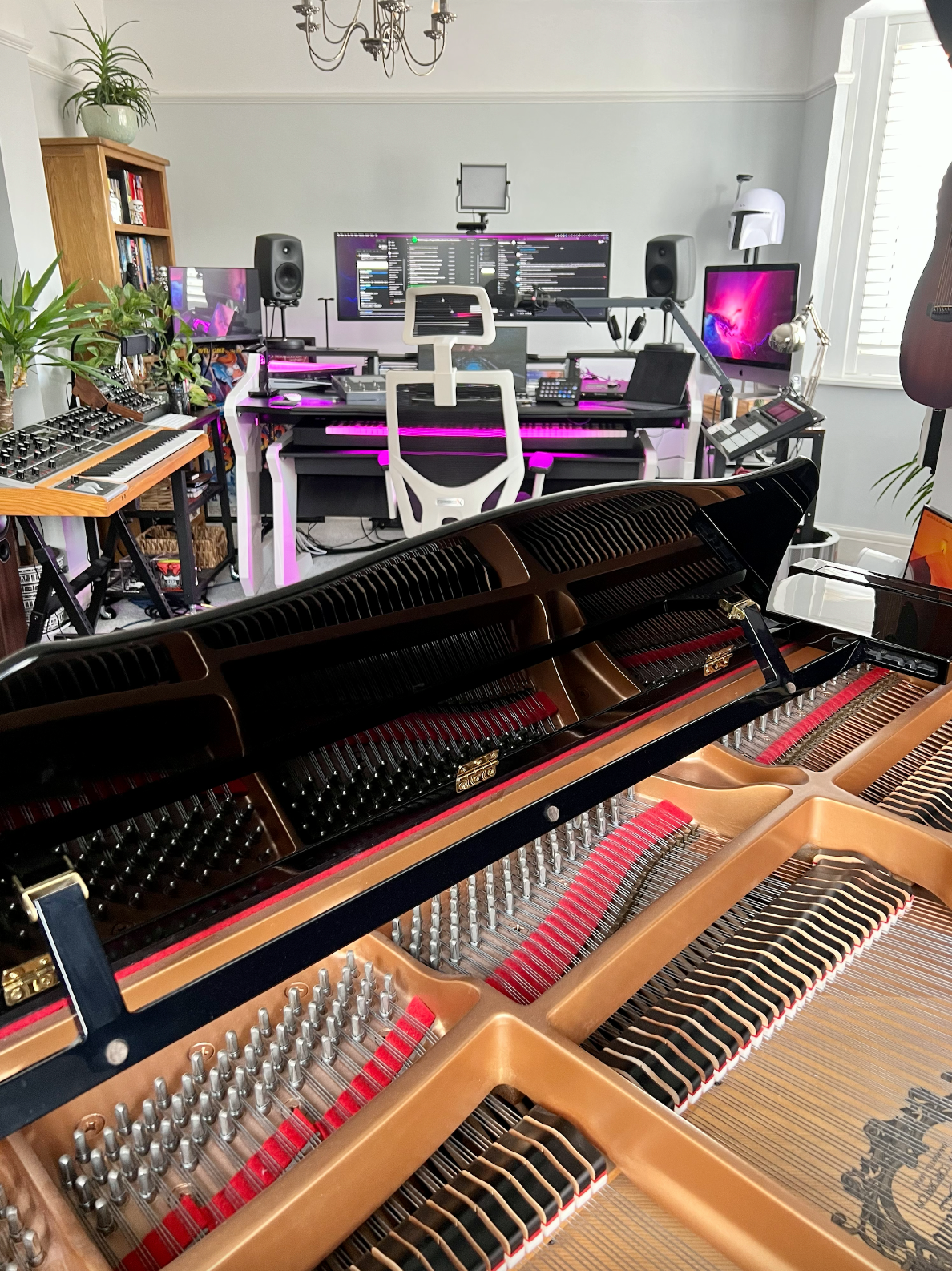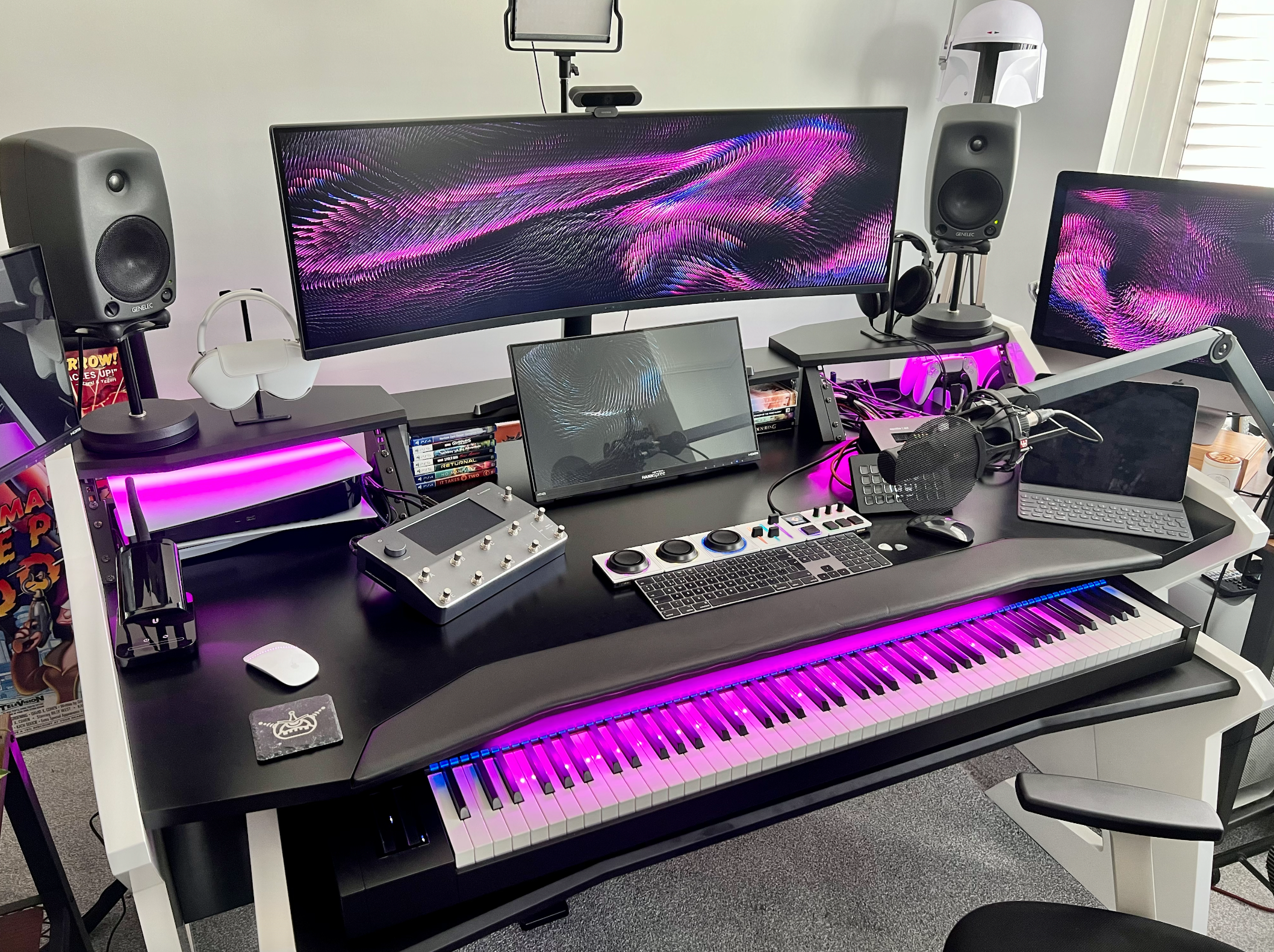Michael Baugh, an up-and-coming British media composer, artist, and music producer discusses his recent composition, Break the Stars, that he created with fellow musicians Tina Guo and Rusanda Panfili, cellist and violinist with Hans Zimmer’s band, and Anna Sentina, a bassist with over 56M views on YouTube.
What made this recording unique is Baugh’s use of new AI-based technology, typically popular with guitarists, which fuses four remote recordings from renowned string musicians.
When did your interest in composing start?
It started with a documentary film, but I've been composing since I was 15. I started writing stuff with a guitar – I just never recorded it. The actual film composing stuff started a few years back with a documentary.
I remember feeling somewhat out of my depth with it because there's processes to do this, and if you don't know them then you will hit loads of barriers and things that should take three or four minutes can take you days, because you don't know what you're doing.
I ended up doing a master's degree online with ThinkSpace Education, which is run by Disney Marvel DreamWorks composer Guy Michelmore. That taught me music production and how to compose because we were learning from industry professionals.
You weren't learning the romantic view of how it should be, you're learning how to do it in the real world. Having such high level professional direction at ThinkSpace gave me the jump I wanted in both composing and music production.
